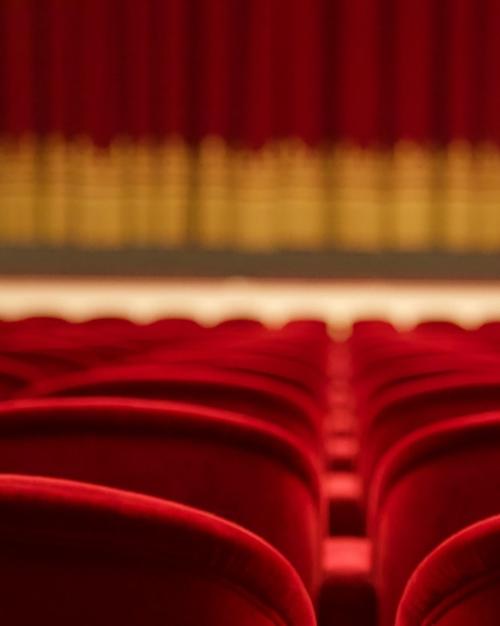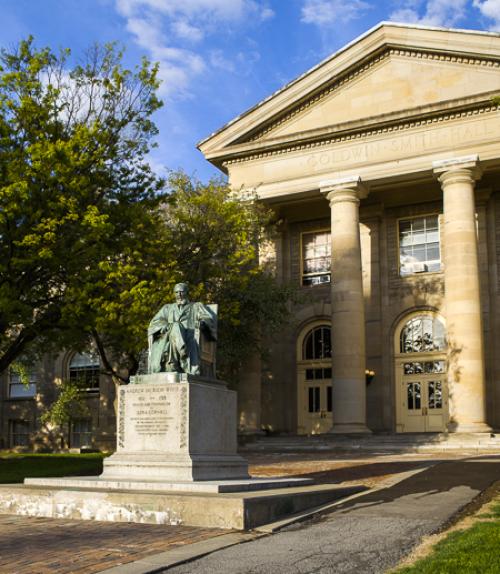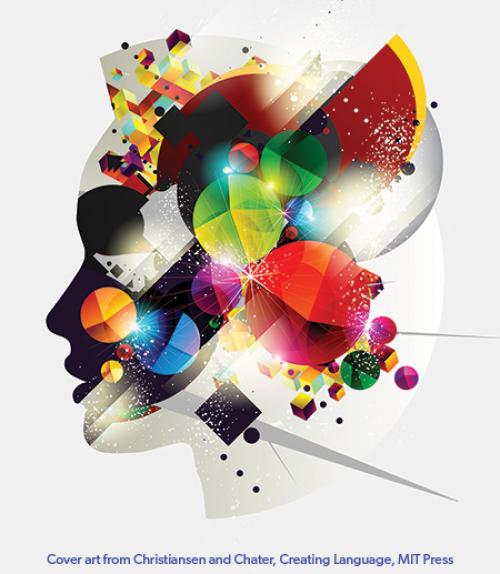Six panels of faculty from across various disciplines in Arts and Sciences will share glimpses of their latest research on topics as diverse as technology and humanitarianism in a series of “Big Ideas” panel discussions this semester.
The panels are part of the College of Arts and Sciences’ New Century for the Humanities celebration, which will culminate May 26 with the dedication of Klarman Hall, the new humanities building on the Arts Quad.
The idea for the panel discussions started last fall during meetings of arts and humanities faculty, said Scott MacDonald, senior associate dean for arts and humanities for the College of Arts and Sciences. The meetings highlighted the diversity in subject matter and methodologies among the college's 13 arts and humanities departments, he said.
“But we also rediscovered and reaffirmed the extraordinary commonalities that bind arts and humanities disciplines together and unite us as faculty,” MacDonald said. “We wanted to put on display a selection of the exciting work our faculty are doing on important topics, both timeless and timely. Moreover, we wanted to show how our different approaches and perspectives very often converge on or cluster around themes — big ideas — in ways that can be deeply illuminating and invite creative, boundary-breaking collaborations.”
The first of the discussions will happen Feb. 22, as faculty members Karen Bennett of philosophy, Laurent Dubreuil of romance studies and Morten Christiansen of psychology discuss aspects of their latest research related to the mind. That panel is scheduled from 3-4:30 in the atrium of Klarman Hall.
Bennett said she will introduce the topic of the philosophy of the mind, then speak about her latest work, which focuses on the language that philosophers use to describe how phenomena are “made from,” “generated” or “built from” other phenomena.
Bennett teaches introduction to philosophy and metaphysics classes, as well as graduate-level seminars, and said her classes are filled with students from various schools with diverse majors.
“The study of philosophy involves rigorous, clear thinking and requires an ability to create strong arguments,” she said, so they appeal to any student who enjoys tackling hard questions.
Other “big ideas” to be addressed in the talks include sound, technology in the humanities, sustainability, migration and humanitarianism and its discontents.
That last panel discussion will feature Prof. Olufemi Taiwo of Africana Studies, sharing his ideas and research into foreign humanitarian aid in Africa.
“No country has moved its people from poor to rich as a result of foreign aid,” said Taiwo, who argues that aid should only be given to countries in times of emergency. “I’m not talking about taking vaccines away from small children, but rather creating a system where we can pre-empt humanitarian catastrophes.”
Trevor Pinch, professor in Science and Technology Studies, Kim Haines-Eitzen, professor of Near Eastern Studies and Ben Piekut, associate professor of music, will speak on the “sound” panel.
“What’s so exciting about sound is that it’s been one of the more neglected senses,” said Pinch, whose work focuses on sound and technology. “Most of humanities has focused on the visual. But now there seems to be a greater interest in sound, even among scientists who are trying to sonify data.” Last week’s major scientific announcement about the detection of gravitational waves included a recording of the wave, sounding a bit like a drop of water.
Haines-Eitzen’s current research focuses on the absence of sound: ancient peoples and their search for quieter places. On her travels to desert landscapes, she found quite a bit of noise, even first thing in the morning.
“In the Negev, I was determined to record environmental sounds and get all of the human sounds out of the picture, so we went out around 4:30 a.m., but within an hour or so, we heard bombing practice,” she said. Disappointed about the failed recording session, Haines-Eitzen re-read her texts and found that ancient people were also bombarded with troubling sounds, like the arrival of the Persians and the clamor of war.
Another of the Big Idea sessions will focus on migration and feature panelists such as Maria Cristina Garcia, history professor, who says migration has been a contested issue in the U.S. since the 1870s.
She’s currently working on a book about changes in U.S. policies related to refugees and asylum-seekers since the Cold War.
“During the Cold War, people seeking to escape communism were considered refugees, now the war on terror is the new lens through which we view refugees,” she said.
Diverse departments will be represented March 15 when the topic is technology in the humanities.
Jeremy Braddock, professor of English, said that discussion, and the series in general, illustrates the strong working relationships Arts and Sciences faculty have with colleagues in other departments.
Braddock’s talk will focus on his research into the Firesign Theatre, an American comedy group of the 1960s and 1970s, and the way they used the multi-track recording studio as a medium for literary writing.
The ‘Big Ideas in the Humanities’ series
Mind, Feb. 22, 3-4:30 p.m., Klarman Hall Atrium
Panel participants: Karen Bennett, philosophy; Laurent Dubreuil, romance studies and Morten Christiansen, psychology
Sound, Feb. 29, 3-4:30 p.m., Klarman Hall Atrium
Panel participants: Kim Haines-Eitzen, Near Eastern studies; Benjamin Piekut, music and Trevor Pinch, science & technology studies
Sustainability, March 10, 2:30-4 p.m., Klarman Hall Atrium
Panel participants: Karen Pinkus, romance studies; Sara Pritchard, science & technology studies and Aaron Sachs, history
Technology in the Humanities, March 15, 3-4:30 p.m., Klarman Hall Atrium
Panel participants: Jeremy Braddock, English; David Mimno, information science and Anindita Banerjee, comparative literature
Migration, April 12, 3-4:30 p.m., Klarman Hall Atrium
Panel participants: Maria Cristina Garcia, history/latina/o studies; Iftikhar Dadi, history of art and Alejandro Madrid, music
Humanitarianism and its Discontents, April 25, 4:30-6 p.m., Klarman Hall Atrium
Panel participants: Elizabeth Anker, English; Saida Hodzik, anthropology and Olufemi Taiwo, Africana Studies and Research Center
Visit our "New Century for the Humanities" page for information on other upcoming events.




